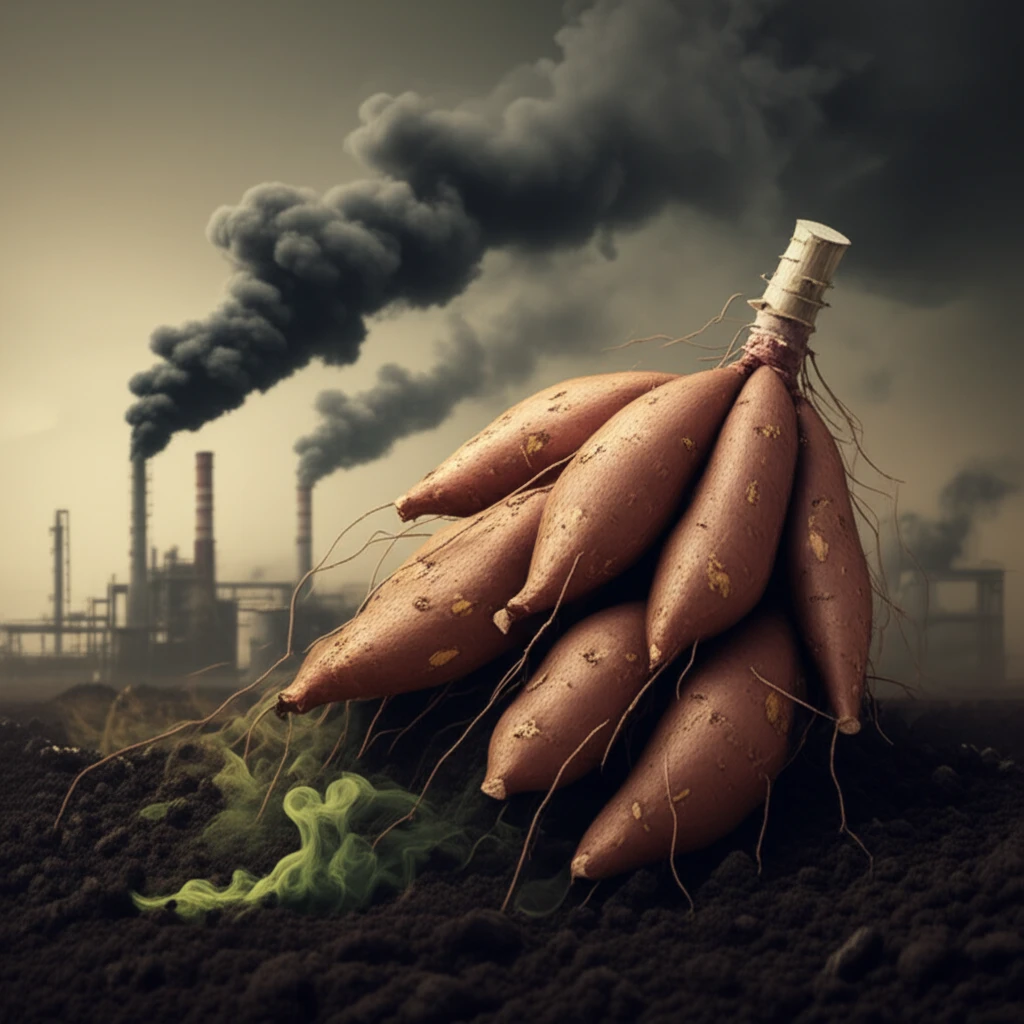
Is Your Food Processing Polluting Your Soil? The Truth About Cassava Mills
"Uncover the Hidden Dangers of Cassava Waste: A Deep Dive into Soil Contamination and Sustainable Solutions for a Healthier Environment"
Cassava, a staple food for millions, plays a critical role in global food security. Its versatility makes it a favorite in developing countries. Nigeria, the world's largest cassava producer, relies heavily on this crop, transforming it into everyday foods like garri, tapioca, and fufu. But behind these familiar foods lies a hidden environmental challenge: the waste produced during cassava processing.
Turning cassava into food generates both solid and liquid wastes that can harm the environment. Cassava peels and liquid effluents, if not properly managed, pose significant health and ecological risks. These wastes contain substances that deplete oxygen in water bodies, disrupt soil balance, and threaten biodiversity. For communities dependent on cassava, understanding and mitigating these environmental impacts is crucial.
This article explores the effects of cassava processing waste on the soil around local mills. We’ll break down the science, revealing how these wastes alter soil composition and impact the environment. More importantly, we'll look at potential solutions, offering a path towards more sustainable cassava processing practices.
How Cassava Processing Changes the Soil: Understanding the Science

A recent study investigated the environmental impact of cassava processing wastes in Ekiadolor, Nigeria. Researchers analyzed soil samples from around a local cassava mill, comparing them to control samples taken further away. The goal was to understand how cassava waste affects soil composition, both in terms of microbial life and chemical properties.
- Microbial Composition: Different types of bacteria and fungi were identified and counted in the soil samples.
- Physicochemical Properties: The acidity (pH), cyanide content, and levels of essential nutrients were measured.
- Mineral Content: The presence and concentration of minerals like calcium, magnesium, and heavy metals were analyzed.
Turning Waste into Opportunity: Sustainable Solutions for Cassava Mills
The study makes it clear that proper waste management is essential. By educating cassava millers about the environmental risks and promoting effective waste disposal methods, we can minimize the negative impacts and create a healthier environment for everyone. It’s time to turn this waste into an opportunity for a more sustainable future.
